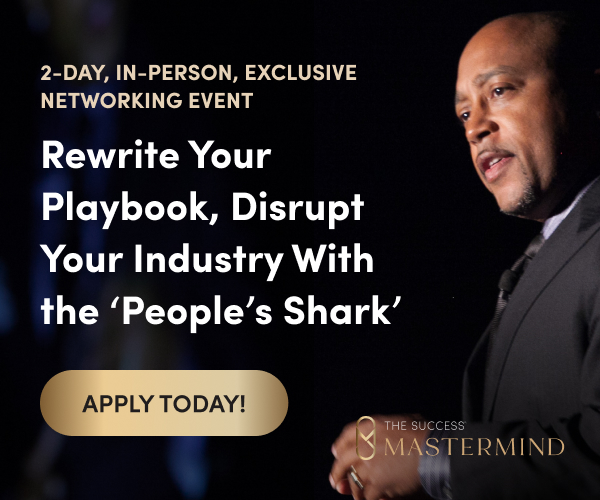In 1989, Jon Carson was on safari in Kenya’s Serengeti National Park, enjoying the lifestyle that comes with selling a successful business. After waking before dawn, he gazed across the savannah; birds and tiny insects began their morning chorus as a glorious sunrise cast the scrubby acacia trees in silhouette.
Carson’s thoughts shifted—to manhole covers. A manhole-cover supplier had been one of his last clients before he sold his management consulting firm, Strategy Associates. While the consulting business had provided a good income, it just wasn’t the type of service Carson, then 32, wanted to provide, day in and day out.
“I realized that I really didn’t care on a deeper, visceral level about manhole covers or any other kind of work that didn’t have a broader purpose,” Carson says. “It wasn’t making the world a better place in enough of a tangible way for me.
“It was in Kenya that I really was drawn to the proverb, ‘The journey is the reward.’ I realized I wanted to make every mile of my journey count. For the rest of my life, I wanted to work on big entrepreneurial ideas that help society and have an impact.”
Since that day, Carson has poured his passion into doing good; he’s now a serial entrepreneur with more than 20 years in building and scaling for-profit enterprises that serve a broader social purpose, providing technology solutions to the nonprofit and education sectors. He returned from that trip to Kenya with a burning mission and founded the Family Education Network (FEN), an online educational service company for parents, teachers and children. FEN was acquired by Pearson Education in 2000 for $175 million in an all-cash transaction.
Today, Carson’s the CEO of BiddingForGood, an online charitable commerce platform connecting fundraisers, shoppers and marketers. The goal? To raise money for local nonprofits and schools via online auctions. In September 2010, the company announced that it had raised $100 million for charities through more than 10,000 online auctions since incorporation in April 2003—a remarkable financial feat, considering how charitable donations have plummeted through the recession.
Education is an abiding passion for Carson, thanks to an important role model. He was the only child of a single, working mother, Jane Montant. Montant started out at Gourmet magazine as a receptionist, answering reader letters; 12 years later, she became the magazine’s executive editor— and later the editor in chief—and built an iconic luxury media brand.
Montant imparted the lesson that education was critical to lifelong success. “She was barely making ends meet,” Carson says, “but she took every dime she had to send me to private schools she couldn’t really afford.”
Carson observed his mother’s ambition, leadership style and problem-solving approach, along with one of her great regrets: While her publishing career offered challenging work, it didn’t serve a social good or better the world. Her career wasn’t perfectly aligned with her own beliefs—of helping others less fortunate.
Carson first combined his mother’s dreams of education and social good in FEN. His success allowed him to fund and endow social entrepreneurship lectures at his alma maters, the entrepreneurially focused Babson College and Yale School of Management. At Yale, he learned how private and public sectors cross-pollinate and that a leader might move between government roles and the private sector, creating an eclectic, dynamic résumé.
In 2003, Carson’s educational, business and nonprofit backgrounds made him the right person to helm BiddingForGood—an online business blend of profit and nonprofit. Carson was responsible for taking an idea (online auctions for charity) and making it effective and profitable for both investors and schools. “We’re constantly optimizing so bidders, investors and schools get maximum outcome,” he says. Those behavioral-based approaches pay off, with a 4:1 return on investment for nonprofits.
Carson was fascinated by a systems approach to fundraising: diagnosing fundamental inefficiencies in the current paper-and-pencil model while offering a role for merchants, who could benefit from effective marketing.
He quickly realized that Web-enabling nonprofit auctions could be “what the combustion engine was to the horse and buggy,” as he says, “a whole new category of e-commerce called charitable commerce.”
The inefficiencies at a typical school auction were mind-boggling, including dozens of clipboards to manage, maintain and update, without the ability to figure out when people had been outbid. Social distractions inhibited the bidding process, especially after donors started hanging around the wine bar instead of the clipboards.
Today, with BiddingForGood, nonprofits can build and promote a live auction website that allows 100 percent of the community to participate (not just gala attendees). Through the site, nonprofits also can reach out to cause-minded shoppers willing to bid on items from around the country, as well as merchants willing to contribute to the auction in exchange for market exposure to the donor base.
BiddingForGood’s proprietary algorithms (developed in conjunction with a Harvard Business School professor) determine when to send intelligent bid alerts, whether the messaging should emphasize charitable or competitive benefits and when to close an auction. For example, 40 percent of bidders place their bids in the last two hours of an auction, so it doesn’t make sense to end bidding at midnight.
Carson’s team discovered that live auctions do better than silent auctions because of the competitive dynamics. As a result, email alerts notify bidders when they’ve been outbid and offer the chance to get back in the game. BiddingForGood’s donors are driven by two behavioral components—charitable and competitive. According to the analyzed data, a charitable message of encouragement outperformed the competitive message until 48 hours before the auction’s end; then, and especially in the last 12 hours, online teeth are bared and the competitive dollars start flying—except on Sundays, when charitable messaging always outperforms.
“We’re building a category of charitable commerce premised on observation that nonprofits are highly effective at selling things to consumers,” Carson says, “But what nonprofits need are tools to enable them to get more and better items and to reach a broader shopper base.”
So it’s only natural that Carson feels that many nonprofits sell themselves short in marketing and development. Nonprofits could take a page from the for-profit world, he says, by investing in individuals with proven abilities in fundraising, marketing and analysis. “There are few free lunches,” Carson says. “You have to spend money to make money.”
Not stingy with his own money, Carson and his wife give a percentage of his income toward important causes: their children’s schools, his church, National Public Radio, college annual funds and Net Impact—a national organization spurring social responsibility in the next generation of business leaders.
Carson just completed seven years on the board at Net Impact, which has 260 chapters—representing 200 campuses and cities in 23 countries. “My work revolves around encouraging younger people to channel their entrepreneurial talents into projects that have a social benefit,” he says. “We need more Zipcars, more Stonyfield Yogurts, more Honest Teas: more companies very conscious and thoughtful about their sustainable footprint.
He describes corporate responsibility as his hot-button issue. “We’re lacking business leadership right now,” he says, and the results aren’t pretty. “There’s lots of data that suggest that Americans are losing trust in all institutions, including government, corporations and Wall Street, but they’re not losing trust in nonprofit causes,” he says. “The for-profit world needs to do a better job at policing its own behaviors in sustainability, retaining and building society-wide trust, and instilling a mindset of responsibility to stakeholders beyond the next quarterly earnings report.” More vision for the long, winding path ahead—not just the next few steps.
Carson’s interest and track record in social entrepreneurship made him one of the first three inductees into the Babson College Alumni Entrepreneur Hall of Fame and a New England finalist for the Ernst & Young Entrepreneur of the Year. He’s also served on the boards of the Boston Children’s Museum, the e-Philanthropy Foundation, National PTA, National School Boards Foundation and the Small Business Association of New England. It’s a perfect roux—a blend of for-profit and nonprofit orgs.
“Ideas count and entrepreneurs make those ideas happen,” Carson says. “We have a ton of very big challenges right now. We need our best and brightest working on innovative entrepreneurial solutions.”





